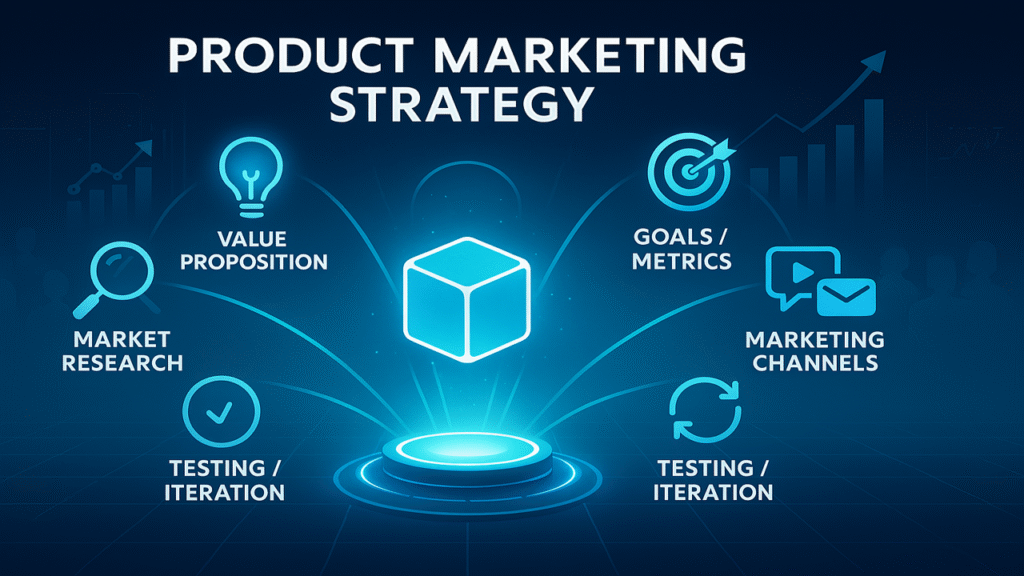Now Reading: Healthcare Sales: Mastering Digital Success
-
01
Healthcare Sales: Mastering Digital Success

Healthcare Sales: Mastering Digital Success
The healthcare industry is undergoing a profound transformation. As digital technologies reshape every aspect of the sector, from patient care to administrative processes, sales professionals find themselves at the intersection of innovation and service. Healthcare sales today are no longer just about selling a product—they are about delivering value, building trust, and contributing to patient care. The stakes are higher, the landscape is more complex, and success requires a new set of skills and strategies.
In this article, we will explore the evolving nature of healthcare sales, its significance in the industry, and the key strategies to excel in this dynamic and highly regulated environment.
Understanding Healthcare Sales
What Are Sales in the Healthcare Industry?
Healthcare sales involve the promotion and distribution of medical products, services, and technologies to various stakeholders, including hospitals, clinics, pharmacies, and healthcare providers. These sales range from cutting-edge medical equipment to pharmaceutical drugs, healthcare software, and consulting services.
Key areas of healthcare sales include:
- Medical Devices and Equipment – Selling everything from diagnostic tools to surgical instruments.
- Pharmaceuticals – Promoting and selling drugs to doctors, hospitals, and pharmacies.
- Healthcare IT Solutions – Offering software solutions for patient management, electronic health records (EHR), telemedicine, and data analytics.
- Consulting Services – Providing expertise to healthcare institutions to optimize workflows, improve financial management, and enhance patient care.
Why Healthcare Sales Matter
1. Improving Patient Outcomes
Sales professionals in healthcare are not just selling a product; they are delivering solutions that improve lives. High-quality medical devices and pharmaceutical products contribute to better treatment outcomes and enhanced patient care.
2. Driving Medical Innovation
Healthcare is a rapidly evolving field, with groundbreaking discoveries and technological advancements emerging regularly. Sales professionals play a crucial role in bridging the gap between innovation and healthcare providers, ensuring that new solutions reach the market efficiently.
3. Economic Growth
The healthcare industry is a key economic driver worldwide. A strong healthcare sales force helps fuel growth, generate employment, and contribute to technological advancement within the industry.
4. Regulatory and Ethical Responsibilities
Unlike many other industries, healthcare is heavily regulated. Sales professionals must be well-versed in compliance with laws such as HIPAA, FDA guidelines, and international healthcare standards. Ethical sales practices are crucial in maintaining trust and credibility in the industry.
How to Excel in Healthcare Sales
1. Master Industry and Product Knowledge
Success in healthcare sales starts with an in-depth understanding of the products being sold and the industry landscape. This involves:
- Staying Updated on Medical Advancements – Keeping track of new treatments, emerging healthcare technologies, and market trends.
- Understanding Regulatory Requirements – Being knowledgeable about industry-specific regulations and compliance standards.
- Analyzing Competitors – Understanding how competing products differ and how your offering provides better value.
2. Build Trust and Credibility
In an industry where patient lives are at stake, credibility is everything. Sales professionals must cultivate long-term relationships built on trust and transparency by:
- Practicing Ethical Selling – Prioritizing patient welfare over financial gains.
- Communicating Effectively – Clearly explaining benefits, risks, and costs associated with healthcare products.
- Engaging in Industry Networking – Attending healthcare conferences, engaging with thought leaders, and staying active in professional circles.
3. Leverage Digital Tools and Technologies
The rise of digital healthcare has introduced several tools that enhance sales efficiency. Key technologies include:
- CRM Systems – Managing client interactions and tracking sales progress.
- Data Analytics – Utilizing data to predict trends and tailor sales strategies.
- Telehealth & Virtual Demonstrations – Conducting remote product demonstrations for medical devices and healthcare IT solutions.
4. Customize Sales Solutions
Every healthcare provider has unique needs. A one-size-fits-all approach does not work in this industry. Sales professionals should:
- Conduct Needs Assessments – Understanding specific challenges and tailoring solutions accordingly.
- Offer Value-Driven Proposals – Highlighting how a product enhances efficiency and patient care.
- Maintain Continuous Support – Following up to ensure that clients get the maximum benefit from their purchase.
5. Continuous Learning and Adaptation
Healthcare is constantly changing, requiring sales professionals to stay ahead by:
- Participating in Training Programs – Engaging in ongoing education and certifications.
- Adapting to Market Changes – Adjusting sales strategies based on new industry trends.
- Seeking Client Feedback – Continuously improving sales techniques through customer insights.
Case Study: How Digital Transformation Reshaped Healthcare Sales
Company Profile: MediTech Solutions, a healthcare IT company, faced declining sales due to traditional sales strategies that relied on in-person visits and manual processes. As digital transformation accelerated, competitors who embraced digital sales techniques started dominating the market.
Challenges Faced:
- Difficulty reaching busy healthcare providers in-person.
- Limited engagement due to outdated sales approaches.
- Inconsistent follow-ups resulting in lost sales opportunities.
Strategies Implemented:
- Integrated CRM and AI-driven analytics to personalize sales outreach.
- Shifted to virtual demos and webinars to engage prospects more effectively.
- Improved post-sale customer support using automated tools.
Results Achieved:
- 40% increase in lead conversion rates.
- 50% reduction in sales cycle length.
- Improved customer retention through enhanced follow-up strategies.
This case demonstrates how adapting to digital healthcare sales can lead to substantial growth and efficiency improvements.
Conclusion
Success in healthcare sales is not just about closing deals—it’s about contributing to an industry that impacts lives daily. By mastering industry knowledge, building trust, leveraging digital tools, and continuously improving, sales professionals can navigate the evolving landscape of healthcare sales with confidence.
The digital transformation of healthcare presents challenges, but it also provides immense opportunities for those who adapt and innovate. By staying ahead of industry changes and focusing on ethical, value-driven selling, healthcare sales professionals can position themselves as indispensable partners in the future of healthcare.
















Binance
Thanks for sharing. I read many of your blog posts, cool, your blog is very good.
Shashi M.
Thank You. Keep reading 🙂